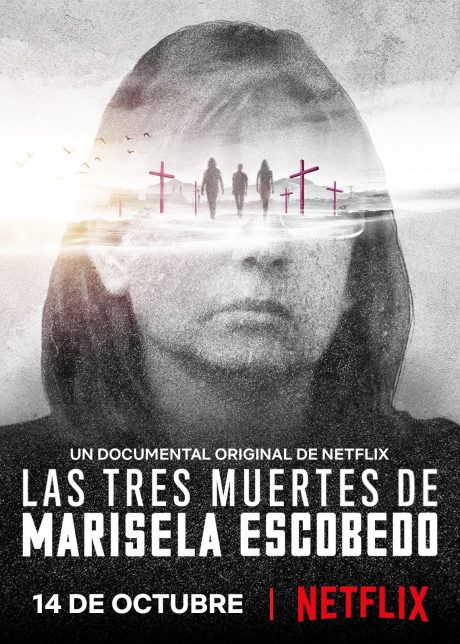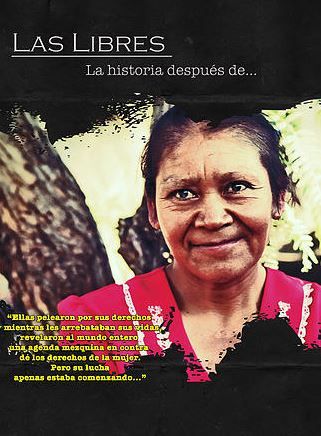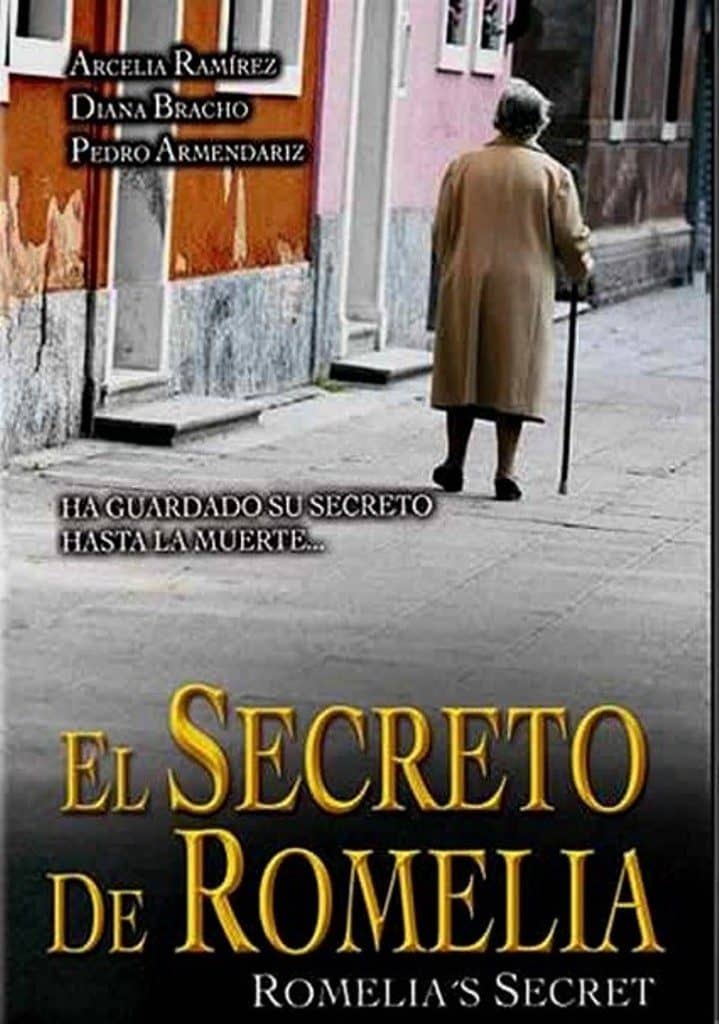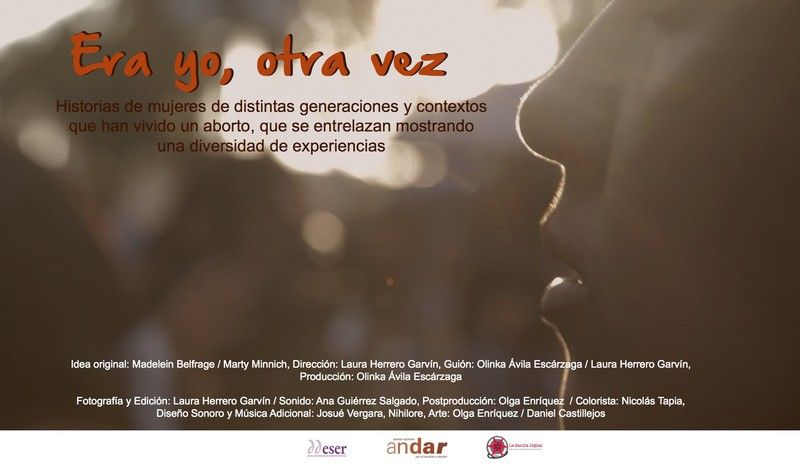Eight noteworthy Mexican films about feminism
Here are 8 films about feminism to promote the work of some filmmakers and women who have contributed to the narrative and cinematographic universe.

For many years the filmmaking profession was thought to be an activity that only men could carry out. However, since the beginning of the history of the seventh art, the presence of women has always existed, women who raised their voices to participate in the different processes of creation, including direction, although for this they had to fight against many resistances that today allow us to enjoy incredible creations and participations of the genre.
For this reason, we have chosen eight films about feminism to promote the work of some filmmakers and women who have contributed to strengthening and expanding the narrative and cinematographic universe with their stories. Let's commemorate the great work of women so crucial for our current societies.
Noche de fuego (Night of Fire)
It is a Mexican drama film directed by Tatiana Huezo. In June 2021, the film was selected to compete in the Un Certain Regard section of the 2021 Cannes Film Festival and won a Special Mention in the Un Certain Regard section. It stars Mayra Batalla, Guillermo Villegas, Norma Pablo and Olivia Lagunas.
Mexico | 2021 | 110 min
Director: Tatiana Huezo
Synopsis
In the mountains of Guerrero, women must find a way to survive and support themselves in a place where men must leave their village in search of better job opportunities. However, the area is controlled by violent drug cartels, so the women disguise their daughters as boys, hoping that this will protect them from the drug traffickers. In this environment, Diana is an intelligent, cheerful girl who dreams of a better future and makes plans to achieve it. But when she has the chance to leave town, a crime links one of her friends and herself, putting her entire future and dreams at risk.
Las tres muertes de marisela escobedo (The Three Deaths of Marisela Escobedo)
It is a Mexican documentary, released in 2020 by the Netflix platform. It addresses the case of Marisela Escobedo Ortiz, a Mexican activist murdered in 2010 while holding a sit-in protesting the lack of justice in the femicide of her daughter Rubi that occurred in 2008. It is based on the investigation of journalist Karla Casillas Bermúdez.
Mexico | 2020 | 109 min
Director: Carlos Pérez Osorio

Synopsis
After her daughter's femicide went unpunished due to the mistakes of Mexico's judicial system, a feisty mother fearlessly begins a tireless crusade to try to bring justice, imprison the murderer and expose the Mexican justice system.
Las libres. La historia después de... (The free ones. The story after...)
The documentary "Las Libres. The story after..." is the story of an extraordinary struggle that succeeded in snatching 9 women from the clutches of the State. The Mexican group Las Libres campaigned for years to free these women, who were facing sentences of up to 30 years for having had abortions.
Mexico | 2013 | 90 min
Director: Gustavo Montaña

Synopsis
Between 2000 and 2008, 150 women in Guanajuato, Mexico, were denounced and some were sentenced to prison for abortion and related crimes. They received sentences of between 25 and 30 years. Centro Las Libres, a civil organization for the defense of sexual and reproductive rights, challenged the system. Six women tell their stories from apprehension and criminal proceedings to their release. The film also compares the situation in other countries such as Argentina and the United States.
Las sufragistas (The Suffragettes)
It is a documentary directed by Ana Cruz, which addresses the struggle that Eufrosina and other women had to fight to achieve their right to vote and political equality, despite the obstacles, inequality, and machismo they faced, managed to reach representative positions regardless of their time and circumstances.
Mexico | 2012 | 87 min
Director: Ana Cruz
Synopsis
In 2008, Eufrosina Cruz Mendoza, a native of the municipality of Santa María Quiegolani, Oaxaca, claimed her right to vote and be a candidate for the Municipal Presidency of her community, a right that was denied to her. Eufrosina's battle revives the struggle of Mexican women for suffrage throughout a century of history. More than 50 years after the right to vote for women was won, contemporary suffragettes continue to defend women's rights since there is still deep resistance in our society and in political parties to recognize women's political participation on equal terms.
Los adioses ("Goodbyes")
It is a 2018 Mexican film about Mexican writer and diplomat Rosario Castellanos Figueroa, her political stance on the role of women in Mexico, and her relationship with Ricardo Guerra Tejada. The film received the Audience Award for Mexican Fiction Feature Film and Special Mention for Actress in Mexican Feature Film at the XV Morelia Festival (2017) the Audience Award at the New Mexican Film Festival of Durango 2018 edition and the 2018 Ariel Award for Best Female Performance.
Mexico | 2018 | 85 min
Director: Natalia Beristain
Synopsis
In the early 1950s in Mexico City, Rosario goes against a society ruled by men: she is a precocious university intellectual, soon one of the capital writers of Mexican literature. However, her turbulent love affair with Ricardo shows a contradictory reverse side. At the high point of her career, in the maturity of their marriage, an argument breaks out that marks a point of no return.
El Secreto de Romelia (Romelia's Secret)
It is a Mexican film directed in 1988 by Busi Cortés. It is based on the short story "El viudo Román" by the writer Rosario Castellanos, in which she gives space to the look that three generations of women have about virginity and what love hides.
In addition to unraveling the reasons for that fact, the filmmaker takes advantage of the characters of Romelia's daughter and granddaughters to compare the traditionalist education with a more liberating one that has stopped seeing the subject of virginity as a taboo.
Mexico | 1988 | 100 min
Director: Busi Cortés

Synopsis
The story is based on the short story "El viudo Román" by writer Rosario Castellanos, which shows the point of view of three generations of women about virginity and what love is. The protagonist is Romelia, an elderly woman who keeps a secret that, despite the years, continues to torment her. However, the death of Carlos Román, her ex-husband, forces her to confront her past.
Sin señas particulares ("No particular signs")
A film that focuses on exposing the violence left behind by organized crime, but through the perspective of a mother who embarks on a search to find her missing son. Winner of 9 Ariel Awards including Best Film, Best First Film, Best Cinematography, Best Original Screenplay, and Best Direction.
Mexico | 2020 | 98 min
Director: Fernanda Valadez
Synopsis
Magdalena has not heard from her son in months, since he left her town to cross the border into the United States. The authorities want her to sign his death certificate, but an encounter with some parents who lost their son makes her realize that she cannot go on living without knowing his fate. Thus begins her particular odyssey through Mexico, passing through areas full of violence and desolation, pursuing any clue despite having been warned not to ask publicly about these matters. changed.
Era yo, otra vez (It was me, again)
It is a co-production of La Sandía Digital, the Network for Sexual and Reproductive Rights in Mexico, and the National Alliance for the Right to Decide, which aims to promote the right to access to legal and safe abortion in Mexico. It was made from testimonies of women who have had abortions and decided to share their experiences.
Mexico | 2016 | 24 min
Director: Laura Herrero Garvín

Synopsis
Through letters to themselves in retrospect, three stories of women activists of different ages and contexts who have experienced abortion are intertwined, showing a diversity of experiences: the difficulties of access to safe services, reflections on their life projects, and the changes they experienced from the interruption of pregnancy.




